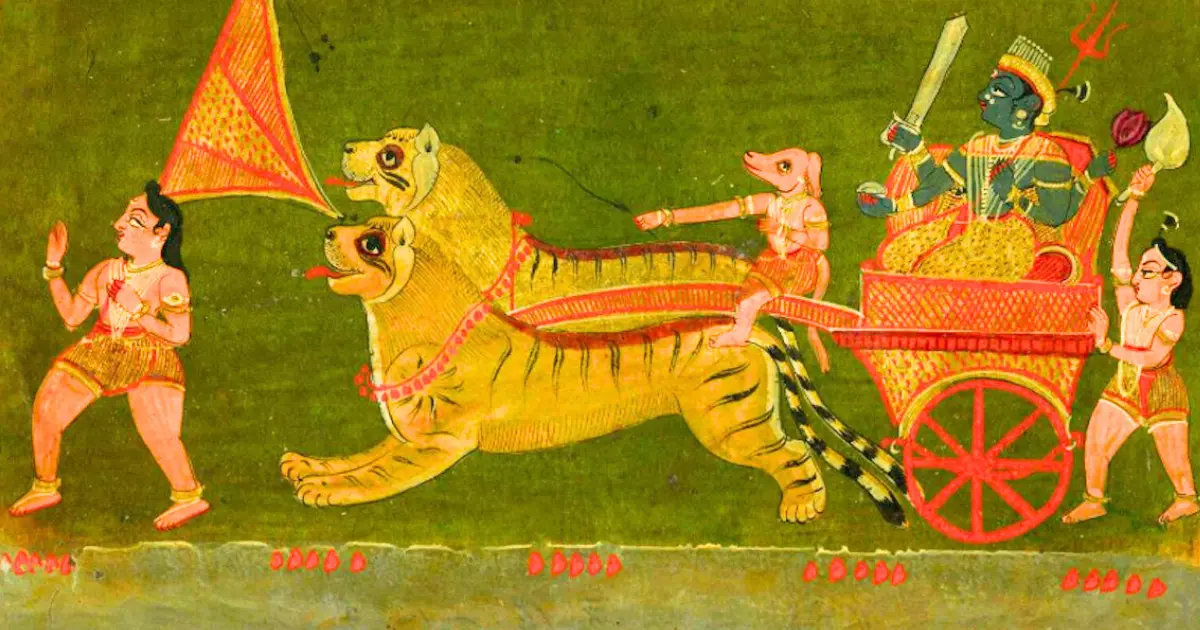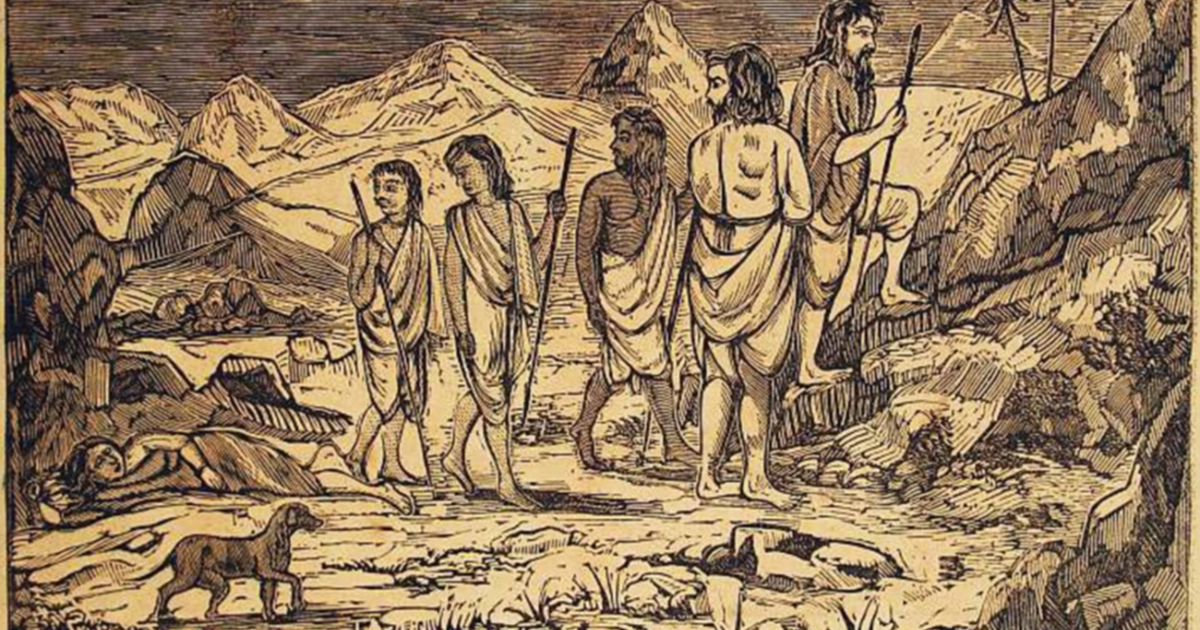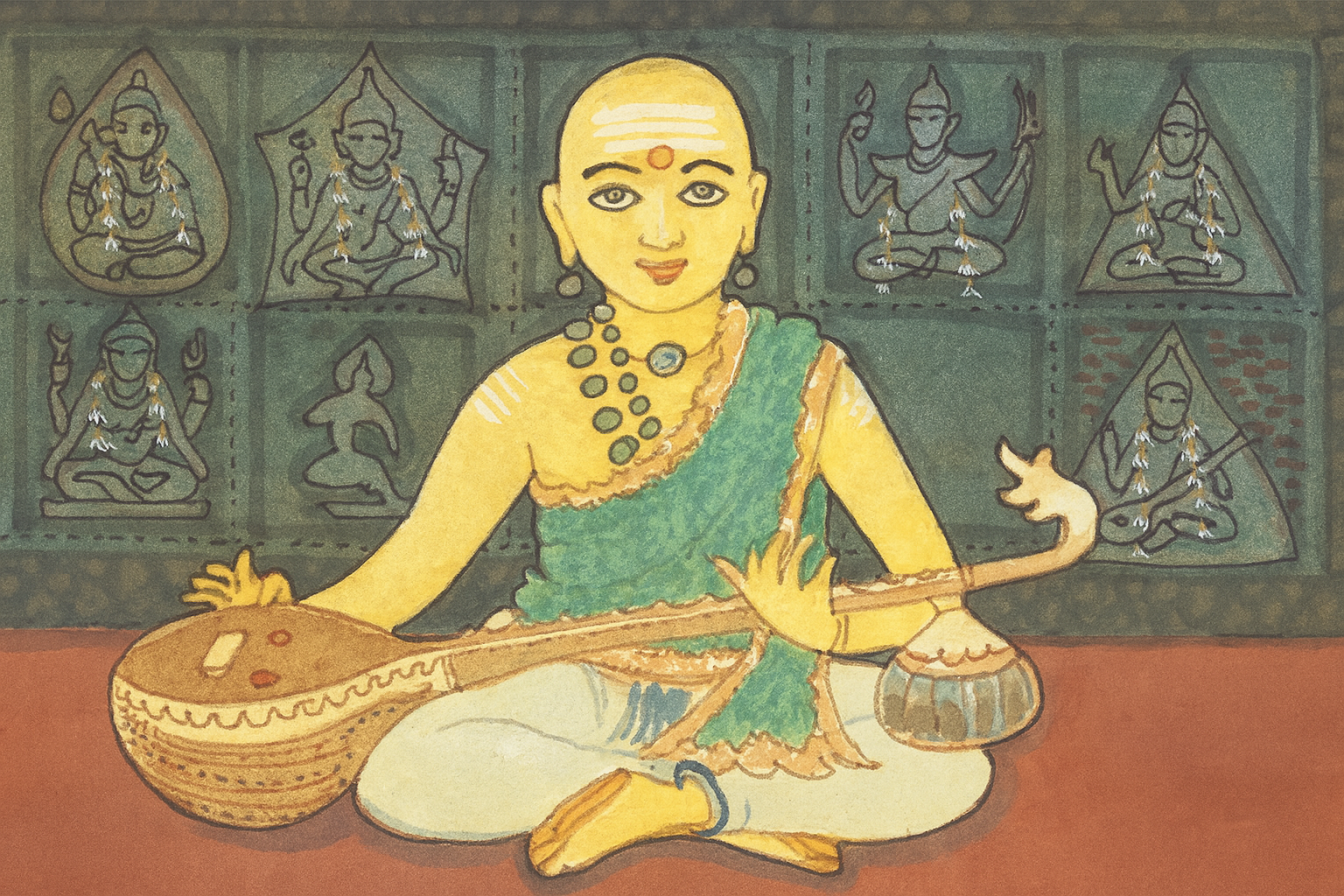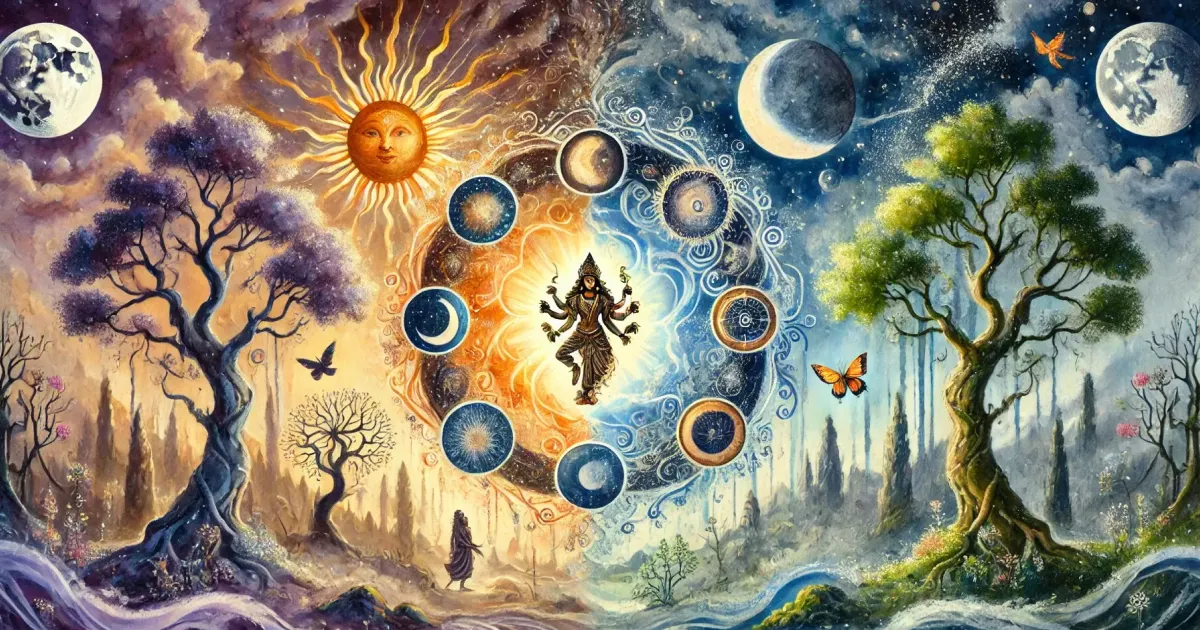Let’s explore 3 interesting pairs: Ideas and Matter, Philosophy and Religion, and Europe and India. These pairs can and have danced together – but they can also duel violently. In these three pairs, Sri Aurobindo, the great Indian mystic of the 20th century, sees a creative tension. A tension that can be productive as well as destructive.
What should sit in the driver’s seat: Ideas or Matter? Must the reason of philosophy and the energy of religion always be at odds? Can Europe and India teach each other anything, or are they distinct civilizations, drifting off on divergent paths?
Let’s dig in.
Ideas v/s Matter
In his essay Our Ideal, Sri Aurobindo writes that the greatest error is to give primacy to matter.
Sri Aurobindo poses a question: What are the “important and effective motors of human action?” Some point to political contingencies, others to economic necessity. Both of these explanations paint man as reactive.
But what’s unique about the human animal, the aspect of our being that makes us almost non-animal, is that we have the luxury – the duty? – to be proactive.
Sri Aurobindo: “When the Thought returns to the surface, humanity has its periods of light.” By thought he simply means “deeper aims.” Beyond political tug-of-wars, economic subterfuge, social striving, and actual war – beyond the material world – there are always ideas and ideals at play. These are the deepest forces that move mankind – they most often manifest in our religion, art, and dreams. These are the secret levers of matter. The world is one long limb to the central nervous system composed purely of thought.
Sri Aurobindo: “The practical man who ignores or despises the deeper life of the Idea, is yet serving that which he ignores or despises.”
Take Charlemagne, the great French King – he imposed order on a “chaotic Europe” with his sword, and set the conditions for feudal Medieval age. And what happened during medieval Europe? A “Catholic interpretation of human life” was lived out on a continental scale – an important event for the “spiritual development of mankind.” All causes and consequences only look material at first, but become spiritual across the scale of centuries.
Europe and India
Europe and Asia have grown up together like two distinct brothers who nevertheless exercise a profound influence on each other.
The “brilliantly intellectual” civilizations of Greece and Rome were created on the intellectual foundations of “Pythagoras” and “Plato” – and these two drew from Asian ideas including “Egyptian, Chaldean and Indian wisdom.” More recently, European physics and philosophy gave us the 20th century. But the “German metaphysics” behind it all itself grew from “Theosophy, Vedantism, Bahaism and other Oriental influences.” Scratch the surface of politics, economics, social trends – and you will find ideas.
While occasionally letting in Eastern ideas, Europe of late has been more interested in the tangible, the observable, and the material. Take the Enlightenment: a wide-scale cultural rejection of “religion, philosophy and psychology.” Religion was discarded as an “emotional delusion” while philosophy was dismissed as “barren thought-weaving.” Psychology came up not to study man’s potential but his perversities.
The idea was to devote all intellectual energy to “a study of the laws of material Nature.” The human being was subdivided into his “bodily, social, economic and political” aspects and new sciences were reared to study these aspects in a purely material vein. It was believed that a “superior civilisation” was going to be the inevitable end result of this rationalization of life. It wasn’t. In the middle of the 20th century, Sri Aurobindo found Europe “sinking in a cataclysm as gigantic and as unnatural” as its attempt to remove spirit from matter.
However, completely giving up on the material world is just as problematic.
Sri Aurobindo wrote that the “exaggerated spirituality” of India “also registered a bankruptcy.” While it is true that Europe’s knowledge was “unillumined” and its organization was “soulless,” it is also true that India, for a certain period, became uninterested in dealing properly with “the facts of life and the shocks of a rapidly changing” world. Our spiritual wisdom must overturn, not promote “mental and physical incompetence.”
What Sri Aurobindo is ultimately against: “a divorce between the Spirit and its instruments.”
The East brings the West a true and needed message: Seek the “law and truth of the soul” – find “an inner reality greater than the material.” The East tells the West: Guard against “exaggerated intellectuality,” an isolated “mechanical genius,” and “erroneous theories of the Absolute.”
The West too brings the East a true and needed message: “Man also is God and it is through his developing manhood that he approaches the Godhead; Life also is the Divine, its progressive expansion is the self-expression of the Brahman, and to deny Life is to diminish the Godhead within us.”
Philosophy and Religion
There are two big forces in the spiritual realm of ideas: Philosophy and Religion. Here’s how Sri Aurobindo defines them: “Philosophy is the intellectual search for the fundamental truth of things, religion is the attempt to make the truth dynamic in the soul of man.”
These two forces can and do get into conflict, but it’s always a mutually destructive conflict. Without each other they lose their individual effectiveness. Sri Aurobindo writes: “They are essential to each other; a religion that is not the expression of philosophic truth, degenerates into superstition and obscurantism, and a philosophy which does not dynamise itself with the religious spirit is a barren light, for it cannot get itself practiced. But again neither of these get their supreme value unless raised into the spirit and cast into life.”
Sri Aurobindo leaves us with important questions:
What is our religion, and how are we raising it “into the spirit”?
What is our philosophy, and how are we casting it “into life”?
Our philosophy must be humble enough to borrow from the energy of religion; our religion must be honest enough to borrow from the truth of philosophy.
And finally, our ideas must be brave enough to accept their grave responsibility: To lead matter into a world of greater sophistication and greater light.






